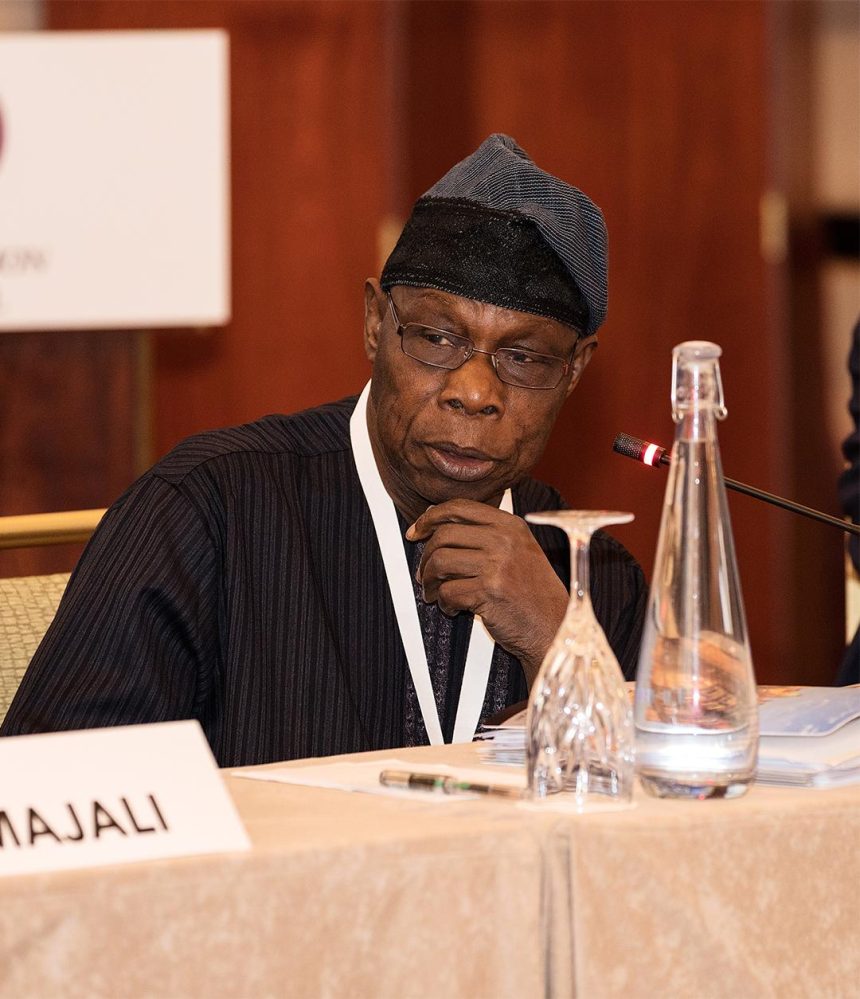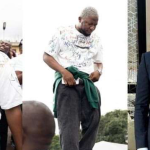Olusegun Obasanjo, the former president of Nigeria, has asserted that humans are responsibleandshouldbe blamed for the widespread poverty in Africa,
Obasanjo made this statement on Monday during the opening ceremony of the FESTAC Africa Festival at the Jomo Kenyatta Stadium in Kisumu, Kenya.
The former head of state stated that there was no reason for poverty on the continent when there are so many resources available for utilisation.
He said, “Africa has no reason to be poor. Our poverty is not an act of God. We are steeped in poverty due to our poor mentality. We need to wake up because we have a wealth of resources.
“If you look back in history, you will see that whenever others needed to get work done, they came to Africa to transport black people to the so-called New World to make others rich. And that hasn’t stopped. The slave trade led to colonialism. We enrich others while remaining impoverished. We need to awaken.
“Structural adjustment was the idea of the World Bank. However, I disagreed because we lacked the structure. What exactly were we adjusting? They were simply deceiving us.”
Obasanjo also expressed a feeling of nostalgia for the Festival of Arts and Culture, which returned in 1977 after an 11-year hiatus, this time in Dakar, Senegal; the festival’s second repetition was hosted in Nigeria, during his regime as the country’s military leader.
“I am here to express my appreciation and thanks, first to the governor of Kisumu County, Anyang Nyong’o, for hosting FESTAC here and contributing to what I call a renaissance and rebirth of FESTAC,” the former president said, recalling his experience from when the festival was held in Nigeria 47 years ago.
He said “I’m a little emotional because, as you may have heard, Senegal hosted the inaugural festival in 1966, and there wasn’t another for eleven years.
“Nigeria agreed to stage another edition of the festival in 1975. Despite preparations, a change of government led some people to suggest cancelling it. However, I insisted that we should proceed and successfully hosted it.”
He further went on saying that the event was a success and brought together black people from all over the world, including Papua New Guinea, Australia, and the United States.
Obasanjo further stated that “it was left entirely in the hands of the government” as the reason th event’s delay and he also said it was postponed for more than 40 years.
Obasanjo, who served as president of the Republic of Nigeria from 1999 to 2007, commended Yinka Abioye, the chairman of FESTAC Africa International, for his continuous persistence and dedication to the success of the celebration.
Obasanjo rallied for support for Odinga’s bid to head the African Union Commission, stating, “Black people who were marginalised and exploited came together at FESTAC ’77, regretfully, this marginalisation still exists. I think it will continue until we get together. FESTAC’s comeback is a result of the unification process.
“Unless the AU as a continental organisation achieves success with the continental free trade agreement, we won’t progress. The AU itself needs reform. How can they develop programmes and wait for the European Union to provide funding? I was appointed as the AU’s High Representative for the Horn of Africa (a region in East Africa consisting of Kenya, Ethiopia, and Somalia). When appointed, the AU had no funds for me to perform my role.
“We waited for the US, EU, Germany, and other countries to provide money. Due to my connections, I approached the head of the African Development Bank, who provided some funds, enabling us to achieve progress in Ethiopia. Yet, the AU could not provide even that $500,000.
“We need individuals who understand Africa’s problems and the role the AU should play. I believe Raila Odinga is that person. He understands Africa’s issues because we have worked together on these problems before.”
He added that while political independence has been attained in Africa, economic freedom has not yet been attained.
“That’s why we need someone like Odinga to lead the AU and provide the reform and leadership necessary to achieve economic liberation for Africa,” he added.
He also advised the African leaders to abandon Western concepts that might not be effective to their continent.




